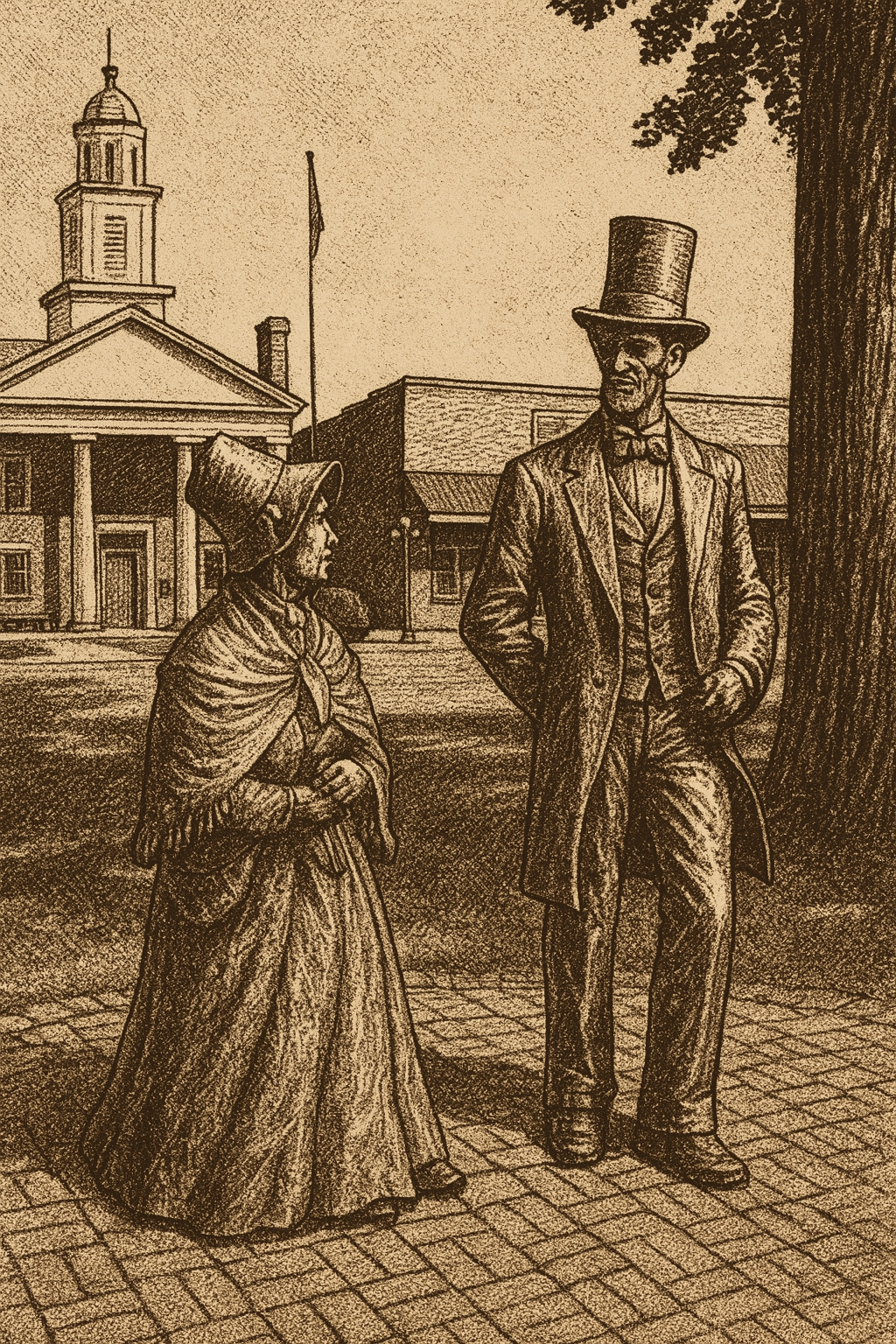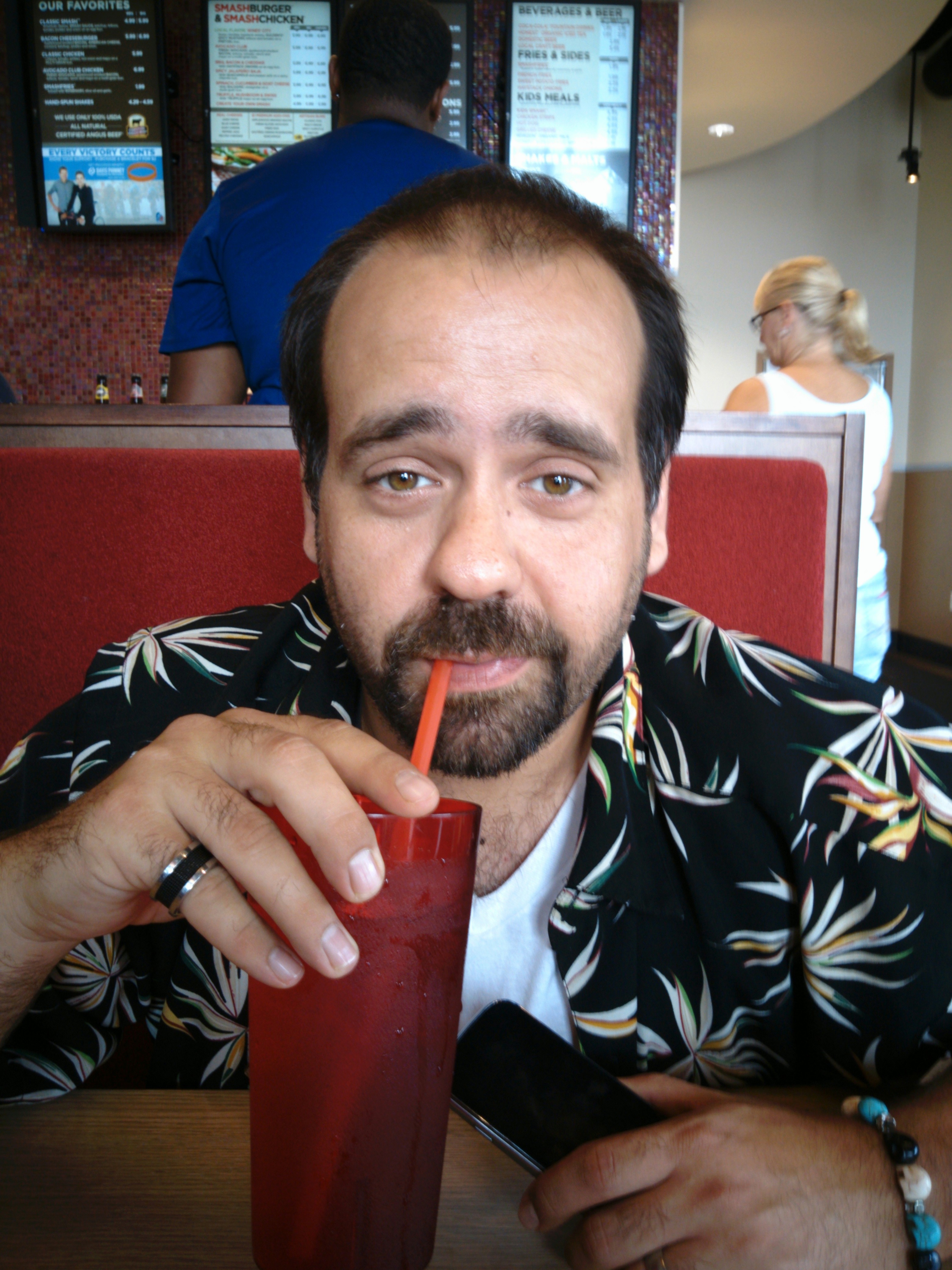
The Law, The Legend, and The Leap to Tennessee: Why Morality and Legality Are Not the Same Thing — and Never Were
Let me tell you a story — a real one — about Abraham Lincoln, a battered woman, and a very strategic drink of water.
It’s 1857 — Metamora, Illinois — a rough little courthouse on the edge of the American frontier. Melissa Goings — seventy years old — is on trial for murdering her husband. A capital case. Her life — literally — on the line. But here’s the thing — her husband? A "known wife beater" — drunk, violent, feared even by his friends. And Melissa? She finally snapped. In the middle of an attack, she struck him with a piece of firewood — he died days later.
And now — despite decades of abuse — she’s the one on trial.
Enter Lincoln — yes, that Lincoln — not yet president, but already sharp, respected, and deeply attuned to the power of law — and its limits. He asks for a continuance. Denied. A recess? Granted. And then — surprise! — the judge revokes Melissa’s bond. She’ll now await trial in custody. A trial, it turns out, she’ll never see.
Because during that little recess — she vanishes.
Poof — gone.
When the judge demands to know what happened, Lincoln deadpans — “She asked where she could get a good drink of water — and I told her there was mighty good water in Tennessee.”
Uproarious laughter. No follow-up. No manhunt. No contempt charge. One year later — the murder charge is dismissed. Just like that.
This — this tale — this courtroom ghost story dressed up in legend and frontier charm — has lived on for over 160 years. There’s a statue of Lincoln and Melissa in Metamora’s village square — not of a lawyer committing a crime — but of a local folk hero helping justice do what law refused to.
Because make no mistake — if Lincoln helped her escape — it was illegal. No gray area. Aiding a fugitive? That’s a crime. It was then — it is now.
But was it wrong?
That — dear reader — is the thorny core of this story. Because here’s the truth: morality and the law are not the same thing — not by a long shot.
The Law Says Hang Her — The People Say Don’t
Let’s look at the facts. Melissa Goings had no legal protections. The law didn’t recognize “domestic violence” as a crime. A husband could legally beat his wife under “chastisement” laws — yeah, really. Melissa couldn’t own property in her own name. She couldn’t vote. Couldn’t get a restraining order. Couldn’t just leave.
So when she defended herself — after decades of violence — the law didn’t care. The prosecution used her husband’s “dying words” to suggest she killed him for his farm. The judge? Described as unsympathetic — even hostile. A conviction meant the gallows. Not justice — execution.
But the community — the people who knew the situation — didn’t want to see her die. They’d seen the bruises. Heard the screams. Probably helped her hide more than once. And now? They wanted her gone — not hanged.
So they looked the other way. Maybe the sheriff left a door unlocked. Maybe a deputy “forgot” to follow her. Maybe Lincoln pointed toward freedom with a wink and a joke — and the whole courtroom cheered not because they were fooled, but because they were in on it.
The Law is a Tool — Not a God
We tend to mythologize the law — wrap it in flags and marble and gavels and Latin — as if it’s always right. But law is a human creation — built by flawed people in flawed times. It can be just — sure — but it can also be cruel, outdated, or simply wrong.
Slavery? Legal. Jim Crow? Legal. Women as property? Legal. Segregated schools? Legal until 1954. The law changes — morality evolves — and sometimes, those two things crash headfirst into each other in a dusty courtroom in 1857.
Lincoln knew this. Reverence for the law, he once said, should be the “political religion of the nation.” But even he recognized the law isn’t sacred when it’s unjust. In the case of Melissa Goings, he may have chosen morality over legality — empathy over protocol — and humor as his sword and shield.
So What’s the Lesson Here?
Melissa Goings disappeared into the Tennessee hills — and into folklore — but her story sticks around because it forces us to ask the hard question:
What do you do when the law is wrong?
Lincoln — that gangly, eloquent, log-splitting lawyer — may have made his choice in the blink of an eye. It wasn’t a legal argument. It was a moral one — disguised as a punchline.
Final Thought — and a Confession
This blog post — like Lincoln’s courtroom quip — is a collaboration. Not with a runaway client — but with AI. Yep — you read that right. This was written with the help of artificial intelligence — trained on countless words, laws, and stories — but driven by one very human question:
When justice and legality collide — which one wins?
If you're lucky — and if you’re brave — you might just point out the window and say, “Tennessee’s got mighty good water.”
Then let the laughter do the rest.
—
Written by Zac Fosdyck (with help from AI)
zackhacks.xyz | me@zackhacks.xyz | Metamora, IL
Cyber Resilience Advocate — Frontier Moralist — Part-Time Trouble Stirrer
Ask ChatGPT
